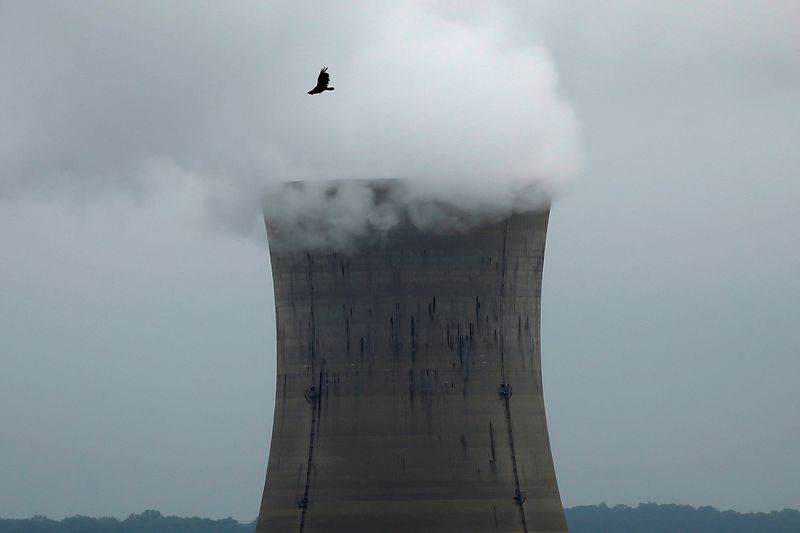By Timothy Gardner
WASHINGTON (Reuters) - Just under half of Americans support nuclear power to generate electricity, a waning industry the Biden administration has been trying to revitalize with billions of dollars in public spending as part of a plan to cut U.S. greenhouse gas emissions, a new Reuters/Ipsos poll showed.
The poll, conducted last week, found 45% of Americans support nuclear power, 33% oppose it, and 22% are not sure how they feel about it. Of those supporting it, 48% cited energy reliability, 43% cited lower overall pollution, and only 39% said they favor it as a low-carbon energy source.
Of opponents, 69% cited the risk of nuclear meltdowns, while 64% worried about nuclear waste.
President Joe Biden's administration believes nuclear power, which generates power virtually free of greenhouse gas emissions, is essential to fighting climate change and boosting the reliability of the U.S. power grid.
The administration is also pushing to expand solar and wind power to help decarbonize the grid. The Reuters/Ipsos poll showed 76% of Americans back solar power, while 74% supported wind power, and 68% backed hydro-electric.
Fossil fuel power stations garnered less support with natural gas plants getting 41% and coal-fired power plants 36%.
The administration is implementing a $6 billion program, with funding from the bipartisan infrastructure bill, to save existing U.S. reactors slammed by high security and safety costs and competition from natural gas and renewable power.
The program's initial phase aimed to keep open two plants that had announced plans to shut. One of those, Entergy Corp (NYSE:ETR)'s Palisades facility in Michigan, shut last month. It is uncertain whether the other, PG&E (NYSE:PCG) Corp's Diablo Canyon plant in California, which plants to fully shut in 2025, will tap the program to stay open.
Even among those who said they oppose nuclear power plants, 56% supported keeping currently operating plants open while not building new ones, the poll found.
The United States currently has more than 90 operating reactors that generate about 20% of U.S. power. The newest U.S. reactor came into service in 2016, the first in around 20 years.

A series of high-profile mishaps over the past several decades, including the Fukushima reactor meltdown in Japan in 2011, has undermined public support of the industry, while high costs for building reactors has slowed investment.
The Reuters/Ipsos poll was conducted online in English throughout the United States. It gathered responses from a total of 1,004 adults, including 431 Democrats and 355 Republicans. It has a credibility interval - a measure of precision - of 3.8 percentage points.